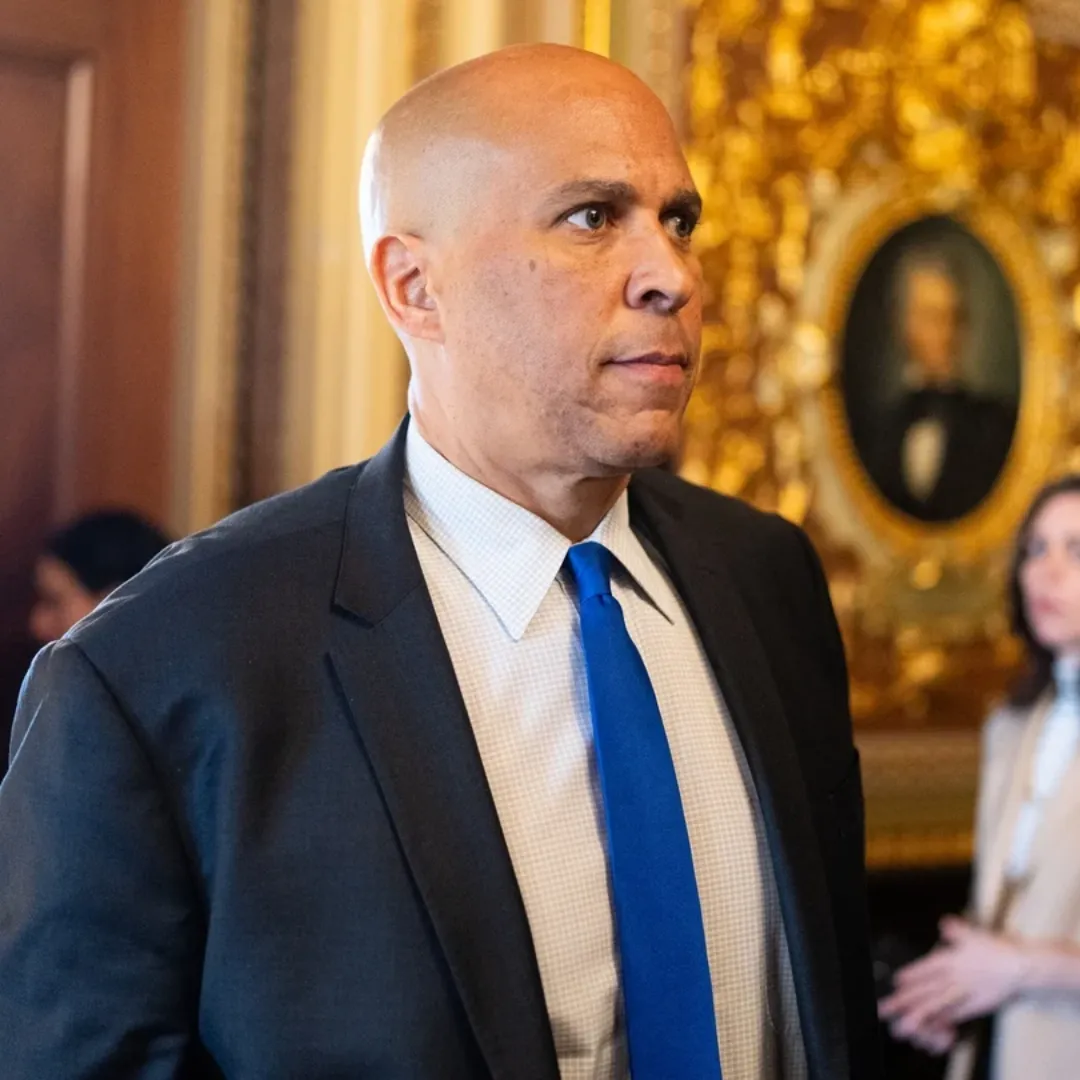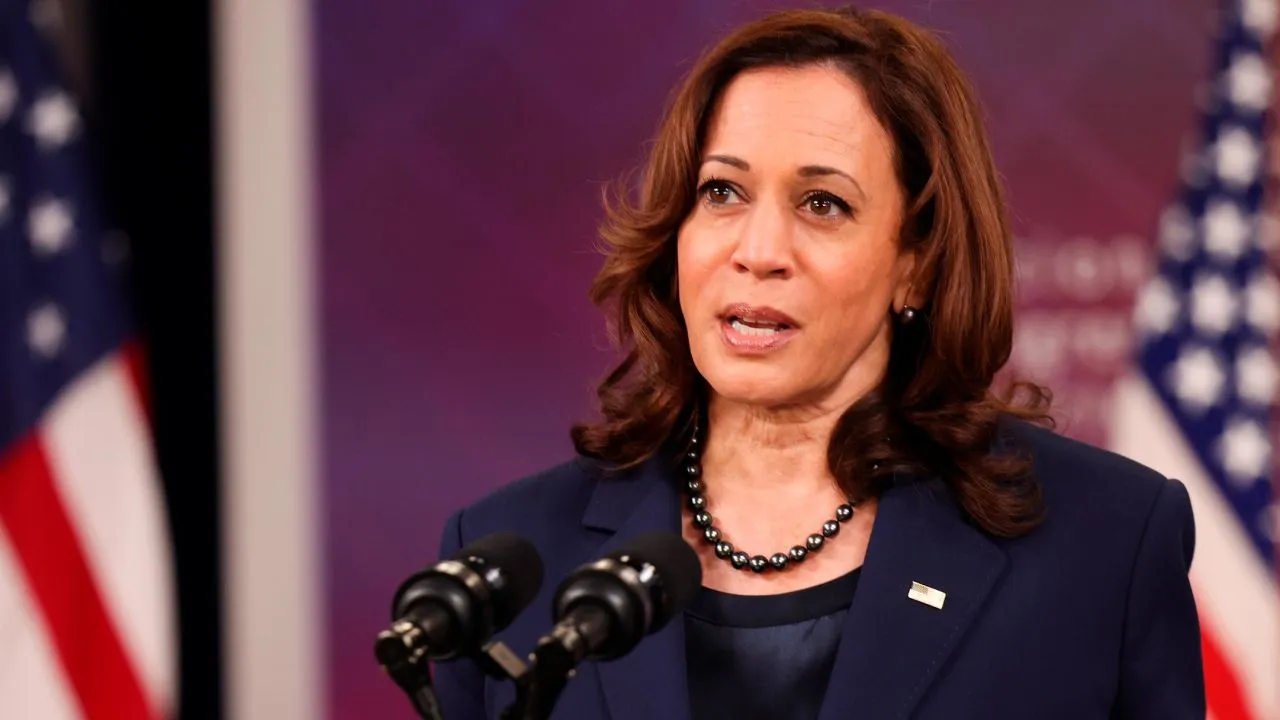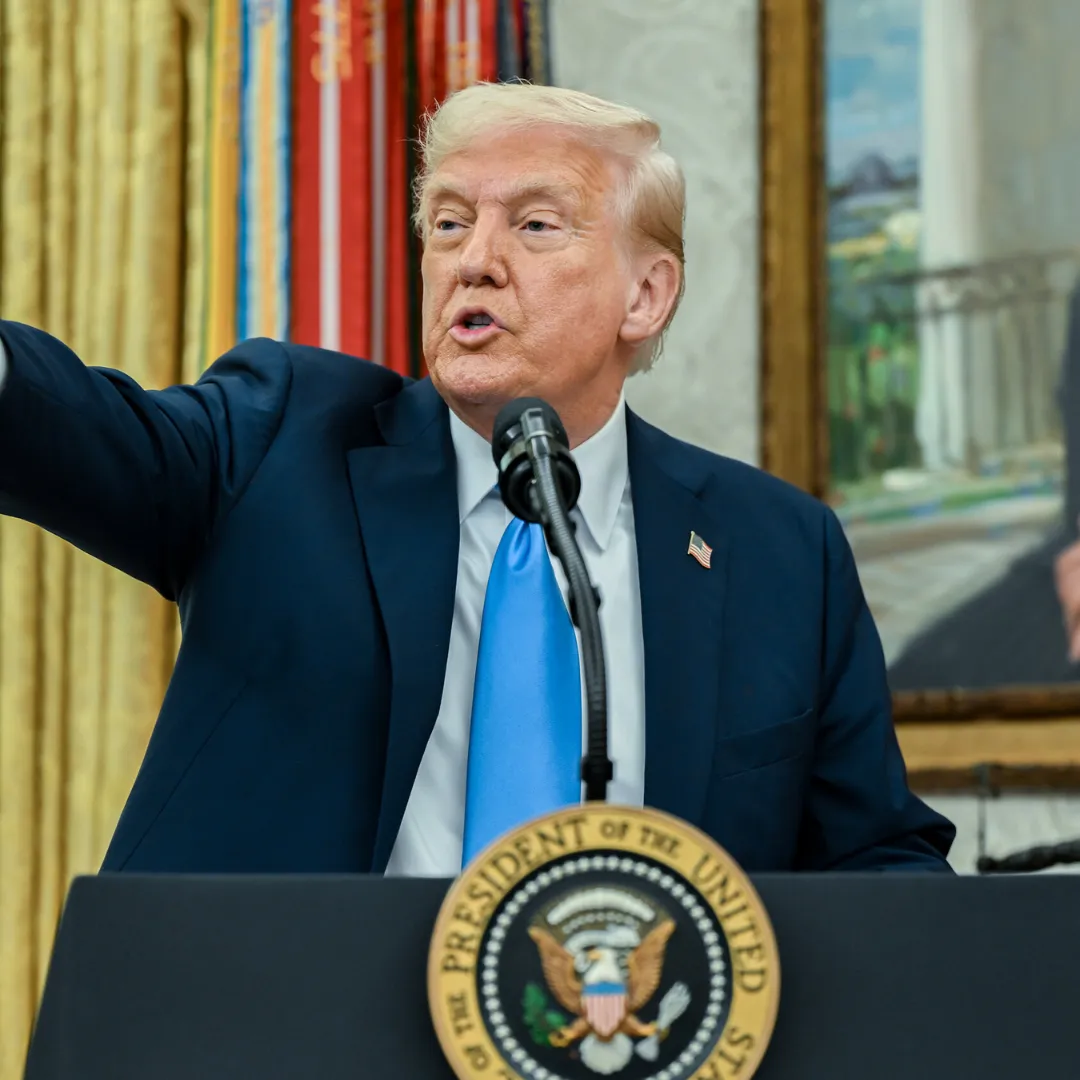
In the wake of last year’s contentious presidential election and ongoing questions about the future of Democratic Party leadership, Representative James Clyburn (D-S.C.) spoke candidly on Friday about Vice President Kamala Harris’s campaign performance and her potential future in politics.
During an appearance on CNN’s “NewsCentral,” Clyburn praised Harris’s resilience and talent, even as he offered a pointed critique of the team that managed her 2024 campaign.
Clyburn, a senior Democratic leader and longtime political force in South Carolina, declined to offer direct advice on Harris’s next move.
Instead, he underscored her strength as a candidate and suggested that her potential remains strong—if she chooses to reenter the political arena, possibly as a gubernatorial candidate in California.
“I am not going to advise her as to what she should do or should not do. I will say this, I think that she is a tremendous talent. I think she ran a great campaign,” Clyburn told CNN anchor Kate Bolduan.
“I think she was ill served in that campaign by people who should have listened to some of us who saw and felt things.”
Clyburn’s comments follow months of internal Democratic soul-searching after the party suffered significant losses in the 2024 election cycle, including the presidency.
His remarks also arrive amid speculation that Harris may pursue the California governorship in 2026, with early polling placing her as a clear frontrunner despite no official campaign announcement to date.
The South Carolina congressman’s reflections are part of a larger post-election reckoning for the Democratic Party, as leaders grapple with how to rebuild a fractured coalition, redefine their message, and prepare for upcoming midterm and gubernatorial elections.
Harris’s name continues to surface as a central figure in these conversations—one whose political future remains both promising and uncertain.

Harris’s 2024 campaign was launched in high gear following the unexpected withdrawal of President Joe Biden from the race.
Biden’s exit came after a widely panned debate performance against Donald Trump, which raised significant questions about his cognitive stamina and prompted calls from within the party for a new standard-bearer.
Initially, Harris appeared poised to inherit the Democratic mantle with Biden’s endorsement, but the campaign that followed was plagued by internal missteps, messaging struggles, and organizational inconsistencies.
Although Clyburn declined to elaborate on which individuals he believed failed Harris, his remarks appear to validate reporting that internal divisions, strategic misfires, and staffing turnover contributed to the campaign’s challenges.
Several insiders reportedly warned early on that Harris’s team lacked cohesion and direction, while others faulted the campaign’s inability to adapt to Trump’s relentless media presence and populist messaging.
“She was a great candidate, and I think she will make a great candidate in the future, whatever she decides to run for,” Clyburn added.
“But I’m not going to give any advice as to whether or not she should or should not.”
Amid the fallout from the 2024 election, Harris has largely retreated from the national spotlight.
However, sources close to the former vice president say she is seriously considering a return to politics by running for governor of California in 2026.
Such a move would represent a strategic pivot from the federal to the state level, and would allow Harris to reestablish her political brand in the state that launched her career.
Polling conducted earlier this year suggests that Harris remains a highly recognizable and broadly popular figure among California Democrats.
Her previous service as California’s Attorney General and U.S. Senator gives her a solid base of support, particularly in the urban centers of Los Angeles and San Francisco.
Analysts believe she would enter the gubernatorial race as a favorite, especially if the current Democratic field remains fragmented.

Still, Harris would likely face questions about her national campaign and the lessons learned from her stint as vice president and presidential nominee.
Political observers suggest that a successful gubernatorial campaign could offer Harris a political reset, allowing her to rebuild credibility and chart a long-term course back to national relevance.
Clyburn’s voice carries weight in Democratic circles, particularly among African American voters and southern Democrats.
His endorsement of Joe Biden during the 2020 Democratic primary is widely credited with reviving Biden’s campaign at a critical moment, delivering a decisive win in South Carolina and helping to cement his status as the presumptive nominee.
In the 2024 cycle, Clyburn was one of the few prominent Democrats who publicly encouraged President Biden to stay in the race following the difficult debate against Trump.
Even after Biden’s withdrawal, Clyburn expressed skepticism toward the idea of automatically handing the nomination to Harris. He proposed a “mini-primary” instead—an idea that reflected both his institutional pragmatism and his belief in letting the process play out.
Ultimately, Harris secured the nomination without a formal contest, buoyed by Biden’s endorsement and support from key Democratic leaders.
But the circumstances surrounding her ascension left lingering questions about her preparedness and the degree to which the party had truly united behind her.

The 2024 general election proved to be a devastating setback for Democrats. In addition to losing the presidency, the party also lost several competitive Senate races, narrowly failed to retake the House, and saw its national approval rating sink to new lows.
Internal party polling and public surveys have revealed broad dissatisfaction among independents and swing voters, many of whom cited economic concerns, immigration issues, and perceptions of weak leadership.
Democrats are now in the midst of what many describe as a full-blown identity crisis.
The party’s leadership, message, and future direction are all under review as members debate how best to reconnect with voters and regain their footing ahead of the 2026 midterms.
Among the most pressing questions: How can Democrats rebuild trust with voters in working-class communities and suburban districts?
Is the party’s current messaging resonating with key demographics, including young voters and voters of color? And perhaps most urgently—who will lead the party forward?
For Kamala Harris, the choices ahead are significant. A return to elective office—whether as governor of California or in another capacity—could offer a powerful platform for reestablishing her political credentials.
Alternatively, Harris could take a longer break from politics, focus on advocacy or private sector work, and wait for the right moment to reenter public life.
Either path would carry risk and opportunity. Running for governor would mean facing intense media scrutiny and possible primary challengers, but it would also allow Harris to craft a legacy independent of her tenure as vice president.
On the other hand, stepping back entirely could lead to political irrelevance in a party that is actively seeking new leaders and fresh energy.
Observers say Harris remains deeply popular among Democratic voters, particularly Black women, who have long formed a cornerstone of the Democratic base.
Yet among moderates and independents, her image has taken a hit, with polling showing mixed perceptions of her leadership and effectiveness.
Whether Harris chooses to reengage politically or not, her decisions in the coming months will have significant implications—not only for her own future but for the Democratic Party’s efforts to rebuild its bench of nationally viable candidates.

Clyburn’s comments on CNN offer more than a personal endorsement. They reflect the ongoing tension within the Democratic Party between different factions—progressives, moderates, and institutional leaders—who each see a different path forward.
His criticism of Harris’s campaign staff highlights a deeper frustration among veteran Democrats about campaign strategy and party discipline.
Many insiders believe that the party has struggled in recent years to effectively coordinate messaging, manage public perception, and unify around a clear set of priorities.
As Democrats prepare for a tough electoral environment in 2026 and beyond, these internal conversations will only grow more urgent.
Clyburn’s role as a respected elder statesman may continue to shape the dialogue around candidate selection, campaign strategy, and party identity.
The Democratic Party, still reeling from its 2024 losses, is facing a pivotal moment.
Kamala Harris’s future—whether it includes a run for governor, a return to national politics, or a pause from public life—will be closely watched as the party charts its course through a turbulent political landscape.
James Clyburn’s praise for Harris and critique of her campaign team serve as both a warning and an endorsement.

They reflect the high stakes of modern political leadership, the importance of disciplined strategy, and the potential for redemption even after a crushing loss.
In the coming months, all eyes will be on Harris and the decisions she makes. Whether she chooses to fight for the California governorship or step back to reassess, her journey will likely mirror that of the Democratic Party itself: searching for identity, reckoning with past mistakes, and striving to reclaim the trust of the American people.



